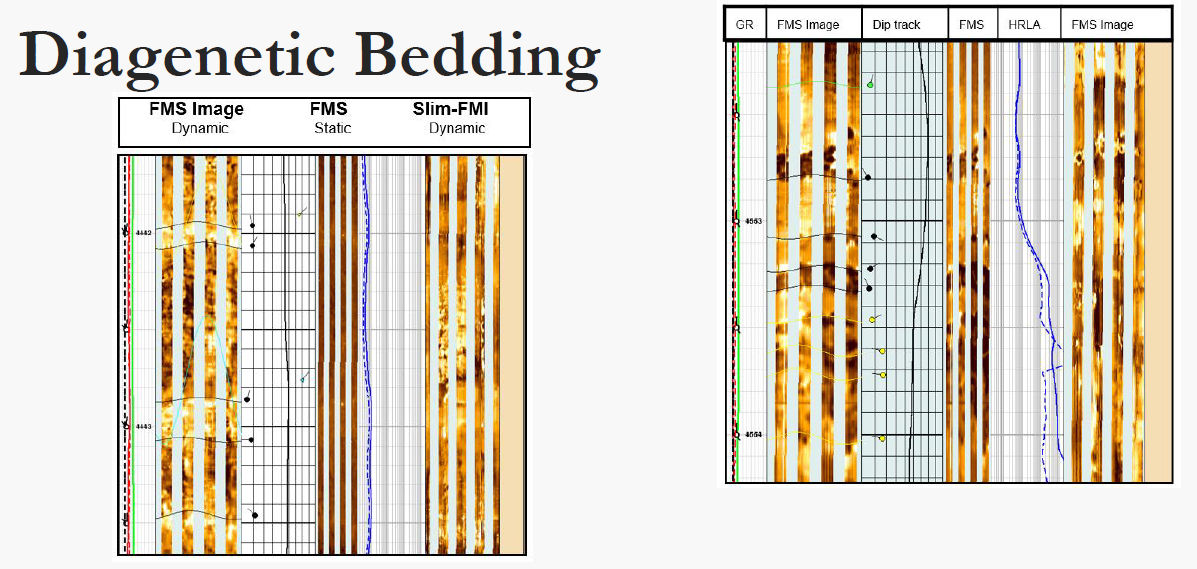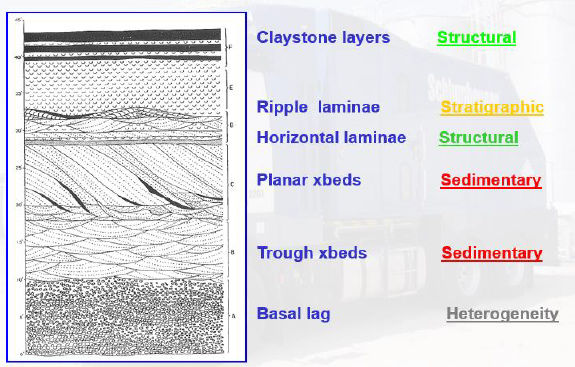
Diagenetic Bedding On Geological Image Logs

Share
Course Summary
In real fact, each dip determination that we make is an interpretation based on a combination of geological principles, an understanding of the image log reaction, and the experience from working in the specific formations being studied. This course gives a review of the diagenetic bedding on the geological images that are in common practice and also the diagenetic bedding seen in the different sedimentary structures.
Subject Area
Upstream Oil & Gas
- Geology
- Geophysics
- Petrophysics
- Log Analysis
- For bulk sales, questions, or any inquiries, contact admin at the following address: admin@alzare.com
- Certificates will be issued after successful completion of training.
Course Outline (Table of Content)
-
Diagenetic Bedding On Geological Image Logs( 1 video 1 pdf)
- Background ( 1 video 1 pdf)
- Challenges
- Objectives
- Workflow
- Diagenetic Bedding
- Structures in Carbonate Rocks
- Conclusion
Cost of Course (USD)
$30
Who Should Buy This Course?
- Borehole Reservoir Geologists
- Geophysicists
- Petrophysicists
- Sedimentologists
Why Should You Buy This Course?
Diagenetic beddings are very unlikely to be identified from conventional wireline logs alone. They may include dissolution seams, stylolite, and clay/argillaceous streaks. We discuss more on this in this course.
Course Preparation
- Learners should have prior knowledge of :
- Logging operations & techniques.
- Understanding of borehole image tools and their application in reservoir characterization.
- Structural Geology fundamentals.
- Structures in carbonate and sandstone rocks (basic).
- Fracture characterization basics.
- Learners should review and study deeply at least one example of the image log analysis from their company (borehole geological analysis report). The borehole image log could be for vertical and or horizontal well from one of your fields. It could be for sandstone and a carbonate reservoir. It could be for Wireline images or for LWD log.
- Learners should have access to a computer with internet access.
Instructor Details

Instructor: Zohreh Movahed
Title: Senior Reservoir Geologist Consultant
- Dr. Zohreh is a Senior Reservoir Geologist Consultant with Springer, Karun Energy.
- Dr. Zohreh has 20 years of petroleum geology experience (reservoir characterization and modelling in fractured and non-fractured reservoir), and technical sales and marketing in NIOC, Schlumberger, Springer, Karun energy, ANTAEUS, and Teleperformance Malaysia.
- 7 years of international consultancy experience in Oil and Gas Industry.
- Professional geological, fracture, petrophysical imaging analysis & modelling.
- Professional fracture and non-fractured reservoir characterization.
- Over 40 published technical papers in engineering and scientific journals.
Education:
- PhD - Petroleum Engineering, UTM University, Malaysia, 2012-2015
- Master of Science in Geology, Shahid Beheshti University (Old National University of IRAN), 1999-2002
- Bachelor of Science in Geology, Payam-e Noor University, Iran, 1994-1998
Ratings & Reviews
No Ratings & Reviews given yet..
More Courses From Zohreh Movahed
Dip Classification on Geological Image logs
529 Views

Zohreh Movahed
Senior Reservoir Geologist Consultant
50
Structural Bedding On Geological Image Logs
461 Views

Zohreh Movahed
Senior Reservoir Geologist Consultant
30
Sedimentary Bedding On Geological Image Logs
465 Views

Zohreh Movahed
Senior Reservoir Geologist Consultant
30
Stratigraphic Bedding On Geological Image Logs
428 Views

Zohreh Movahed
Senior Reservoir Geologist Consultant
30
Fracture Classification On Geological Image Logs
1282 Views

Zohreh Movahed
Senior Reservoir Geologist Consultant
35
Similar Courses (Recommended Courses)
Treatment and Interpretation Techniques of Wireline Pressure Data
486 Views

Paolo Martini
Senior Petroleum Geologist
30
Reservoir Fluids Composition
210 Views

Dr. Farad Sagala
Reservoir Engineer, EOR Expert
10
Hydrocarbon Gas Characteristics
201 Views

Dr. Farad Sagala
Reservoir Engineer, EOR Expert
10
Introduction To Reservoir Engineering
234 Views

Dr. Farad Sagala
EOR Expert, Reservoir Engineer
10













